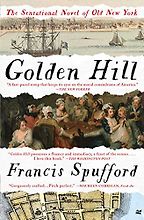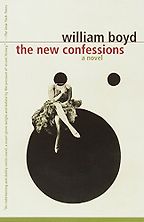You’ve selected five of the funniest historical novels. It’s an interesting theme, because I don’t often associate historical fiction with comedy. Have I been missing a trick?
If I’m honest, I don’t think you have been. Readers of historical fiction tend to prefer to be immersed in a world where heroes or heroines triumph over daunting odds the likes of which we can be grateful we no longer have to face, while comedy requires a more personal relationship with the author’s voice. Jokes tend to pull people out of the period, reminding them that they are reading a novel.
Perhaps that is why there are so few? But I do find the relentless grimness of historical fiction a bit tiring, and po-faced, so often welcome a bit of levity.
How do you approach humour in your own work?
I never ‘tell’ a joke, but I’m always alert for ironies; unexpected outcomes; unmet expectations; that sort of thing. In my novel Sir Thomas Malory is naïve, faintly pompous and usually at the whim of happenstance, but also an accomplished soldier and story-teller. The disparity is where most of the humour lies, so it is not absolutely stuffed with belly laughs.
Yes, what can readers expect of A Good Deliverance, your new novel?
It’s the story of Thomas Malory, author of Le Morte d’Arthur, which was written and printed in mysterious circumstances, but remains the foundation document for all our stories of King Arthur and the knights of his Round Table in search of the Holy Grail. Obviously that has a lot to do with knightly honour, and chivalry and so on, so it comes as a shock that Malory wrote it while in various jails for various crimes, and one in particular that would seem to go against everything he stands for. It is a bit of a mystery.
That’s unexpected! What crimes did he commit?
He was accused of all sorts—from extorting money from tenants to stealing a cart and two hundred sheep as well as ambushing the Duke of Buckingham in the woods at night—he definitely did do that—but there was one which would spoil the plot if I were to reveal, but which is not good, and of which no one can be absolutely sure whether he was guilty or not.
Shall we talk about Joseph Heller’s tragi-comic God Knows first?
I thought I’d choose this instead of Heller’s earlier and better known Catch-22, if only because I read it quite young, and my mother picked the book up to find what I was reading, and read the opening lines of chapter four, I think it is, in which the narrator—the biblical king David of Israel—describes shepherding as being like cunnilingus: ‘dark and lonely work’. I did not know what it meant, but the book was confiscated, and I only finished it much later, and laughed, not just at that, but at many of the salty, sly observations on life and death that David, or Heller, makes.
Yes, it’s not as well known than Catch-22. Does it have a similar tone?
I think it is more personal, in a way. The first-person narrator allows Heller more freedom to indulge himself, often criticising Solomon for stealing his best material and that sort of thing. Lots of biblical references, but brought up to the date—or at least the 20th Century. It’s like listening to Mel Brooks, really.
Next up, we have Francis Spufford’s Golden Hill. Why do you recommend it?
Golden Hill is very quietly witty, with none of Heller’s knockabout humour, but it’s impossible not to read it and smile knowingly at Spufford’s description of human nature at work.
It’s a very civilised novel, set in New York in the 1740s, in which a man named Smith arrives like a stone thrown in a pond to upset the merchants’ lives. There are some terrific set pieces—a duel, a trial, a terrible betrayal —and more than one startling surprise.
Spufford has had a really interesting career. He started off as a nonfiction writer, winning major prizes for I May Be Some Time: Ice and the English Imagination. But then he transitioned to fiction. Golden Hill was, I think, his first novel. Do you sense any of his old, nonfictional self in this book—maybe in the depth of the research?
That is a very good point. It is a restrained, quite civilised novel, and Spufford seems more interested in giving an account than striving for effect. Perhaps that might make it feel a little bloodless, or too tightly controlled, but in fact it is very touching, as well as being witty and knowing.
Your third book recommendation is The New Confessions by William Boyd. Would you introduce it to our readers? What kind of humour should a reader expect?
The New Confessions was the first hard-backed book I bought with my own money, and it showed me that serious-looking books could actually be fun and entertaining.
“I never ‘tell’ a joke, but I’m always alert for ironies; unexpected outcomes; unmet expectations”
Boyd’s humour is quite like my own, particularly on show in the scene in which a young man travels to London to declare his love for an older woman, only when he rings her doorbell in order to propose, he finds she’s with her husband, whereupon he panics, and tells her he is come to London to enlist. Cue four years in the army, and the battle of the Somme.
We recently featured Rose Tremain’s Absolutely and Forever on our site when it was shortlisted for the Walter Scott Prize. Why do you recommend it in this context?
I just loved its ironies, which are of the sort that people often describe as ‘delicious’. Again I suppose it is the gap between perception and reality, and not just the narrator’s misunderstandings, but the readers’ expectations that are being constantly upended. I thought the ending was just perfect, too, although lots of people felt short-changed.
Is this another book in which the humour is in the tone?
It could be her tone of voice perhaps. It is narrated in the first person, like God Knows, and I can’t help thinking that Rose Tremain is probably exactly like that to talk to. Scatty, perhaps, but very honest and absolutely hilarious.
And finally, we have A Brief History of Seven Killings, by Marlon James, which won the Booker back in 2014. Why do you admire it?
Set in Jamaica during the shockingly turbulent 1970s, Marlon James’s Booker Prize-winning book is about the aftermath of the attempted assassination of Bob Marley. In many ways this is too recent a time to even think about finding it a matter for wit or humour, and there is not a single joke in it, but the language is so inventive, and so unrepeatably bad that you can’t help laugh. I should say that I listened to the audio version of this, brilliantly read by an ensemble cast, and doing so will change your own way of thinking about everything for a couple of weeks thereafter.
I think maybe a theme of this selection is that the authors don’t seem too intimidated by the weightiness of their subject matter—that there can be levity, sarcasm, witty turns of phrase whatever the situation. Does that sound right to you?
Yes, that’s it exactly. I think they’d all be fun and interesting to talk to. They all know whereof they speak, but there’d be no lectures; no pontificating.
Interview by Cal Flyn, Deputy Editor
December 17, 2024. Updated: February 12, 2025
Five Books aims to keep its book recommendations and interviews up to date. If you are the interviewee and would like to update your choice of books (or even just what you say about them) please email us at [email protected]
Five Books interviews are expensive to produce. If you've enjoyed this interview, please support us by donating a small amount.












